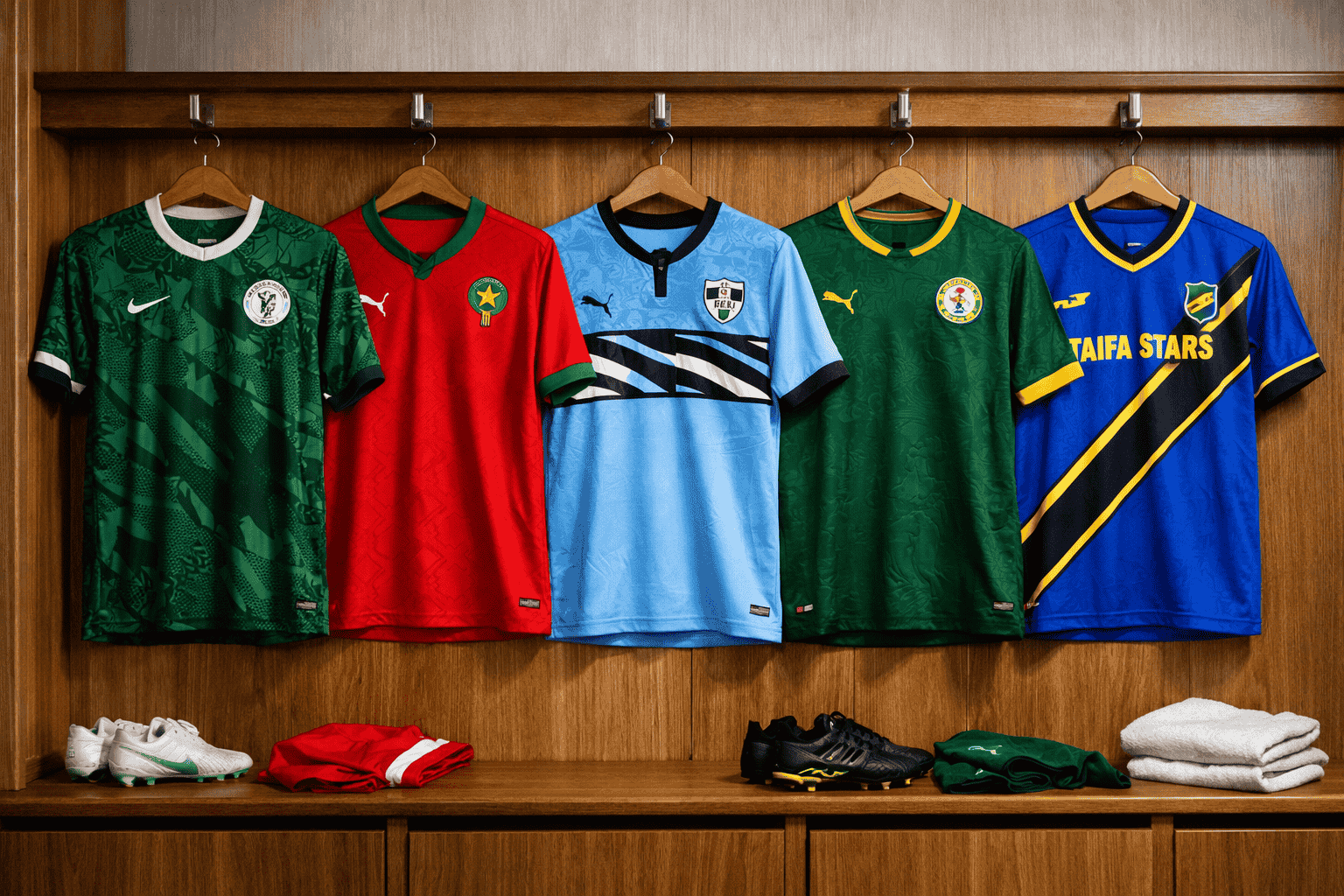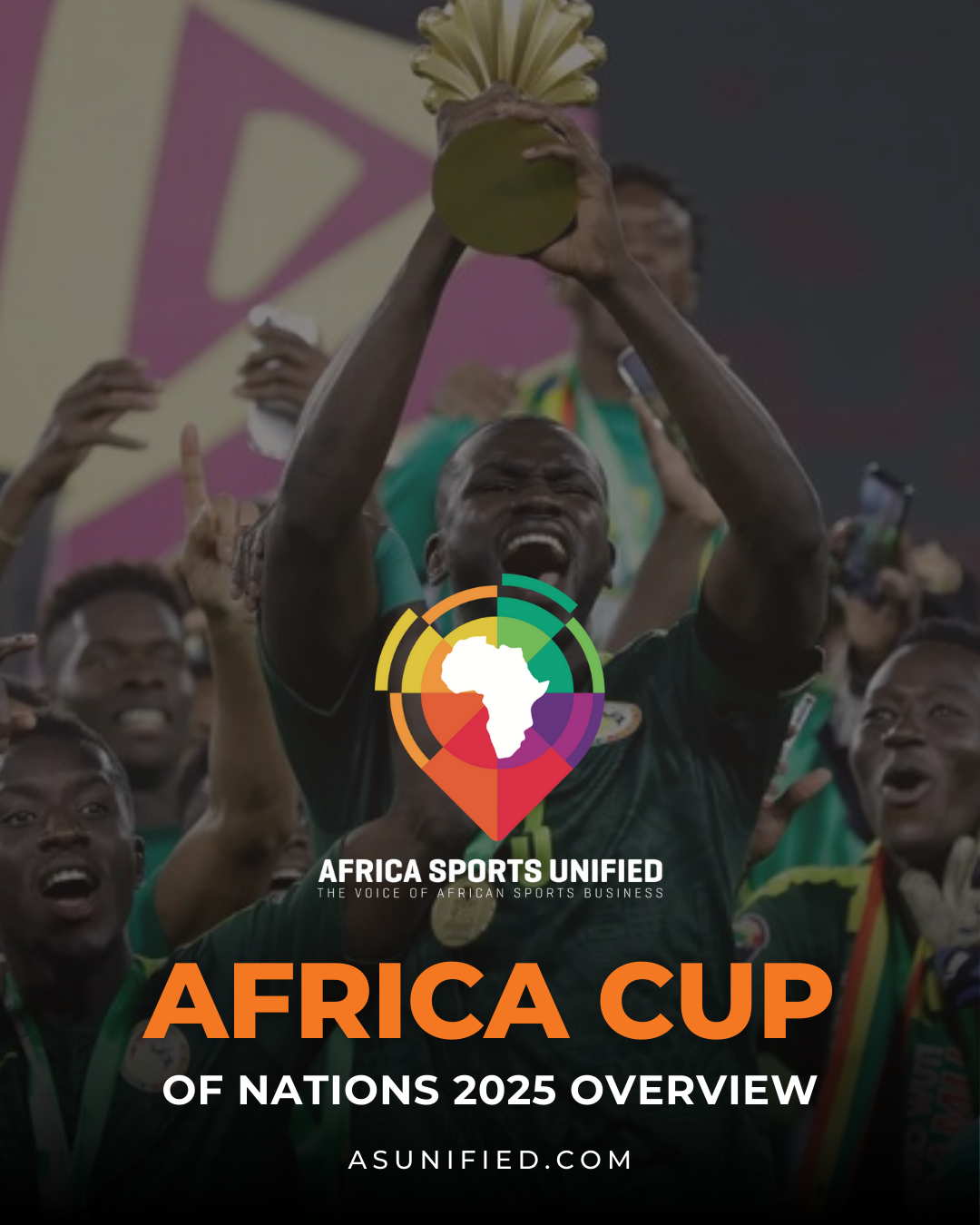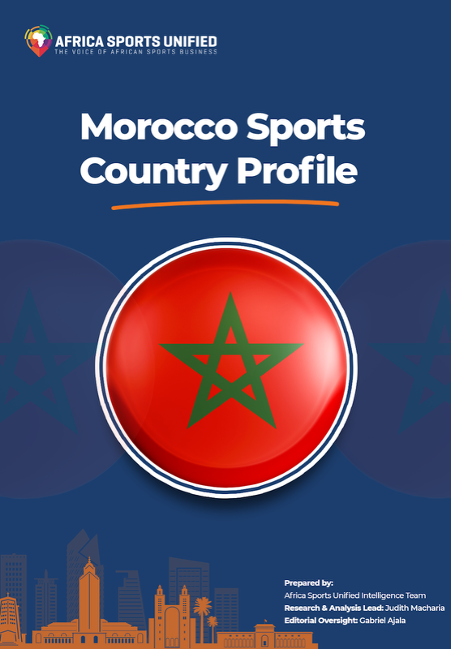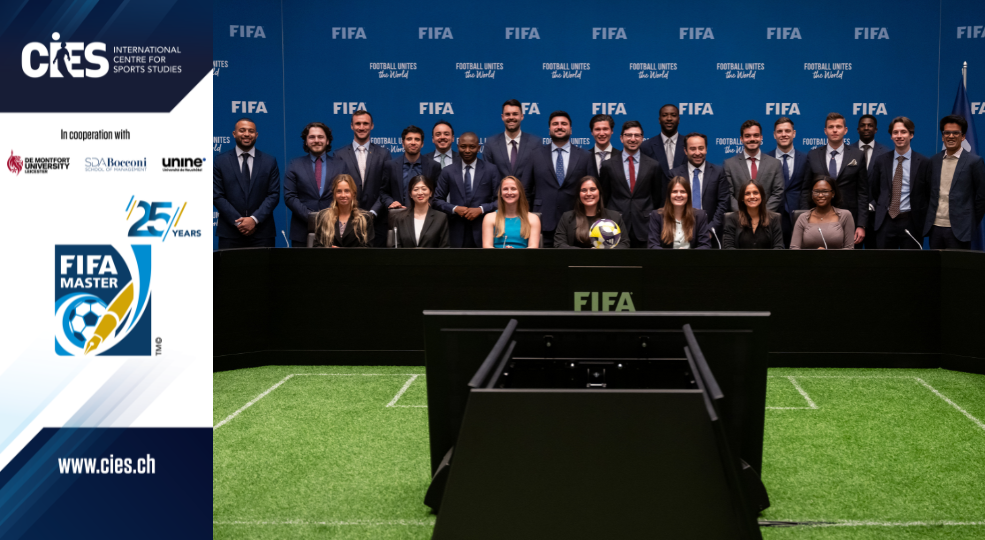5 Key Takeaways from the 2023 Africa Cup of Nations
Gabriel Ajala
February 12, 2024

This blog contains 5 key takeaways from the 2023 Africa Cup of Nations, which if implemented, can further grow and enhance Africa's biggest football tournament. AFCON 2023 smashed records in term of global audience and media partners, but how can this be further leveraged?
As the curtain comes down on what has arguably been the best Africa Cup of Nations to date, we have put together some key takeaways of the tournament and future opportunities that lie ahead.
On Wednesday 14th February, we will be hosting a post-event interactive webinar to delve a little deeper into some of the points made. If you would like to join, simple download the ASU AFCON 2023 Overview Report.
It's crucial to look beyond the scoreboard and delve into the multifaceted impacts of this monumental event. From economic revivals and ground-breaking media rights agreements to digital fan engagement and commercial successes, AFCON 2023 has left an indelible mark on the continent's football landscape.
These key takeaways are shaped through:
Plus, some conversations and observations. Some of what I say may be new to you or something you have already heard before. Whatever the case my be, I would love to get your thoughts on some of the points made.
1: Economic Impact & Infrastructure
AFCON is more than a football tournament; it's a catalyst for significant economic development and infrastructural enhancement in the host nations. Investments in stadium construction, transportation networks, and hospitality are not merely expenditures but strategic inputs that fuel long-term economic growth.
For example, as mentioned in the ASU AFCON Overview Report
- It is estimated that Egypt generated $83m in revenue from hosting the 2019 edition of the tournament.
- AFCON 2021 which took place in Cameroon, was the highest revenue generating edition for CAF, reaching $79.7m.
- AFCON 2021 also saw investment to the sum of $885 million into Cameroon, for instance, showcasing the scale and potential of such projects.
These infrastructural advancements not only serve the immediate needs of the tournament but also act as a beacon, attracting international attention and foreign direct investment, thereby fostering an enduring economic legacy. The ripple effects extend beyond the sports sector, rejuvenating local economies, creating jobs, and enhancing the global stature of the host nations.
HOWEVER, the hosting of major sporting events needs to be part of a bigger strategic plan for the host nation. This is an extremely important point as the infrastructure developed, could soon become an unwanted burden for the nation rather than the catalyst for economic growth.
Africa Sports Unified produced an important podcast touching on this subject that focuses on how major sporting events were used by Qatar alongside Dr Daniel Kelly & Gerard Akindes which you can listen to here
2: Media Rights & Broadcasting
This is one of the biggest talking points leading up to the tournament and I think beyond the tournament also.
New World TV acquiring the free-to-air and Pay TV rights for sub-Saharan Africa in a deal worth $75 - $80m for 3 years, was a ground-breaking moment. The relatively new entrant into the market, a pan-African broadcaster, owned the rights from more established companies such as beIN MEDIA GROUP , CANAL+ Group & SuperSport .
This was officially announced in November 2023, 2 months before AFCON began.
I mention the month as naturally, with only 2 months before the tournament, it was a rush against time to subsequently sub-license the rights to local broadcasters. In the week leading up to the tournament major territories such as Nigeria & South Africa did not know where they will be able to watch the tournament (thankfully it was resolved with The Afrosport Group acquiring the FTA & Pay TV rights before sublicensing them to NTA & SuperSport respectively for Nigeria & SABC for South Africa).
With more time in the build-up to AFCON 2025 in Morocco, hopefully there would be a more streamlined process in place so fans will know in advance where they will be able to watch games and sublicensees have enough time to sell advertising space and market their acquisition of AFCON 2025 & 2027 (depending on the packages available) to see a healthy return on investment.
Despite the domestic teething problems, internationally the interest and demand seem to have increased, indicating the global allure of Africas biggest tournament. The tournament is broadcast across 180 countries (compared to 157 from the 2021 edition) with the likes of SkySports, BBC, RMC, SportItalia & Viaplay showing the tournament.
3. Fan Engagement & Social Media
This tournament has been great, with lower FIFA ranking teams performing well throughout the tournament, such as Cape Verde & Mauritania. As a result, this would see an increase in visitors to the teams relevant pages, with the first point of contact for fans and spectators via social media pages. From our report there are 3 clear rooms for improvement in this regard:
- Many of the teams competing at AFCON 2023 did not have a social media presence across all of Instagram, Twitter, TikTok & LinkedIn.
- If there was a presence on one or more of the social media channels, then often it wasn't an official page, making it difficult for fans to understand which one to follow.
- Few of the Men's national teams had a social media page, it was often just the page of the relevant Football Association.
Having official pages not only helps with branding, fan engagement and communications, but could see an impact on ROI through merchandise and ticket sales to future matches.
The FIFA Digital Skills Platform, led by Ekta Mangal Hutton in which we conducted a webinar on, is a solution to this. The platform contains valuable and insightful sessions with leaders across the digital space. African Member Associations are the most engaged on the platform, showing the appetite to learn and put into practice skills that improve their fan engagement and strategies across all digital media.
Looking at the tournament, during the group stages, CAF highlighted that the tournament had an average attendance of 20,000 per match and total attendance of over 600,000 fans. I touch on this more in my 5th key takeaway, but in the meantime, I look forward to seeing the numbers once the tournament has concluded.
4. Commercial Partnerships & Brand Involvement
In 2023 alone, Confederation of African Football (CAF) announced 12 new commercial partners to their roster including the likes of PUMA, Visa, Orange & Ecobank to name a few. The diversity and global reach of the partners signals a good intention again of the global appeal of CAF to attract such sponsors.
But outside of the headlines, there are 2 aspects which I like to look at which shows the strength and alignment of a deal. (1) the value (2) the duration. Now for obvious reasons, both are not always readily available or in the public domain. However, in the past, we have seen some deals pertaining to AFCON last only 1 year, for example TikTok were a sponsor of AFCON 2021. Not much can be achieved in that time.
So, it is interesting and encouraging to see that some of the latest sponsors have a reported agreement in place that lasts for 3 years. This is a stronger signal to the market of trust, long-term thinking and the time needed to see a return on investment for all parties involved.
An honourable mention must go to the relationship with IMG. Though not an official partner, their involvement to sell media and sponsorship rights on behalf of CAF is another signal to the market of a more sustainable and long-term strategy in place to maximise CAF's assets.
You're maybe wanting to know of some activations during the tournament. This is an aspect we will touch on for the 5th key takeaway.
5. Future Improvements & Opportunities
(1) Economic & Accessibility Challenges.
CAF announced during the group phase of the tournament that there was an average attendance of 20,000 at the games, however it is clear that stadiums were not at full capacity, for example Nigeria v Equatorial Guinea had 8,500 spectators in the 60,000 capacity stadium. CAF produced some reasoning into the difficulties of accessing tickets and I am sure a full debrief will be held once the tournament concludes. However a few issues could be a play here which revolve around the infrastructural and current economic landscape:
1.1 Intra-Africa Travel
Travelling between African countries is still fairly expensive. For example, from Nairobi to Abidjan, round-trip prices start from $653 (taking into consideration the duration and season etc). ÂIf an Algerian wanted to travel to Ivory Coast for the tournament, a week round trip would cost at least 146,000 Algerian Dinars. The minimum wage in Algeria as of 2023 is 20,000 DZD/month."
1.2 VISA-Free Travel
24 countries including citizens from The Philippines, Burkina Faso, Ghana, Mali, Nigeria, and Senegal, can visit Ivory Coast without a visa for up to 90 days. Citizens who are not from one of the 24 countries, would need to apply for the 140 Euro VISA that would allow them to stay for up to 3 months. Less than half of African citizens are able to travel to Ivory Coast visa-free.
1.3 Average Ticket Prices
Setting ticket prices is a fine balance between ensuring fans can afford the tickets and also maximising revenues, as gate receipts are an important factor. The average price for a group stage ticket was reported to be between 5,000 CFA (about $8) or Category three, 10,000 CFA (about $16) for Category two, and 15,000 CFA (about $24) for Category one.
The average salary in Africa's strongest economy as of 2023 (Nigeria) is 71,185 Naira / $155 per month. Taking into consideration the cost of travel and ticket prices, it proves challenging for inhabitants of Africa's strongest economy, let alone the others, to attend AFCON or any major tournament in Africa.
Infrastructure projects and the extent of visa liberalisation, can lead to significant economic benefits for economies and future CAF tournaments. For example, the The World Bank and the African Development Bank Group have reported that infrastructure development in Africa could increase GDP growth by 2% annually and boost productivity by as much as 40%. Visa liberalisation efforts, as per the African Union's Agenda 2063, aim to double intra-African tourism, with tourism supporting over 21 million jobs in Africa. These figures highlight the potential economic uplift from improving infrastructure and easing travel restrictions.
(2) Digital Innovation Engagements
What if, due to the current infrastructural landscape, engaging with a wider audience through digital could be a solution?
We will touch on this point and a few more during our webinar later this week, so if you'd like to hear more thoughts from us alongside other stakeholders in an engaging webinar, then you can do so by downloading our report:
Related Posts




